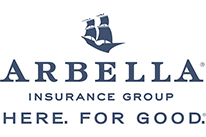Umbrella insurance, also known as personal liability insurance, is like a backup policy that covers your savings and assets in a situation where your other insurance limits are insufficient. For example, if the liability coverage of your auto insurance is limited to $50,000, but you are sued for $60,000, then the umbrella insurance helps cover the difference.
Umbrella insurance cannot be taken out alone but in conjunction with another policy. These can include homeowners’ or condo insurance, auto insurance, watercraft or boat insurance, and many other personal insurance policies. Depending on your needs, umbrella insurance can cover multiple properties, cars, and other vehicles.


Umbrella insurance typically covers the following:
As a general rule, umbrella insurance does not cover your own injuries or damage to your property, nor the damage your business is liable for (you would need commercial umbrella insurance to cover that). In addition, you will not be covered for losses from breaking a contract or committing a crime.
Another thing to keep in mind is those umbrella policies can differ a lot from each other in terms of exclusions and conditions, so carefully review the clauses in yours.
Even though umbrella insurance is frequently referred to as excess liability protection, the two are not identical. Excess liability insurance is used to provide additional coverage on an existing insurance policy – it comes with the same exclusions and covers the same risks.
In comparison, umbrella insurance provides coverage that goes beyond the base insurance policies, e.g., by covering legal fees and other damages from a false spoken or written statement (slander and libel, respectively).In comparison, umbrella insurance provides coverage that goes beyond the base insurance policies, e.g., by covering legal fees and other damages from a false spoken or written statement (slander and libel, respectively).
Anyone can benefit from umbrella insurance, albeit it is not required by law.
Meeting one or more of the following criteria can be an especially good reason to get umbrella insurance:

Umbrella insurance is especially useful for people who have a lot of assets to protect or face a higher risk of being sued. People in prominent positions can be bombarded with lawsuits to either be drained of money or be made to pay large sums. Umbrella insurance is the best protection against frivolous litigation. Furthermore, the coverage applies anywhere in the world.
Even if you have no assets or money, the opposing party can still be granted payouts. If you do not have any assets, the payment can be taken from your future earnings.
When considering taking out umbrella insurance, get coverage that is at least equal to your net worth. One method for calculating your umbrella insurance limit is adding the value of all your assets together minus any debt and loans. Then, look at how much liability insurance you already have in your other policies. Finally, take out umbrella insurance equal to the difference between the value of your net worth and existing liability coverage. Some experts recommend just looking at the value of your total assets without subtracting the debt.
If you are still a student and expect to have a bigger income after graduation, you should include your potential future earnings to determine adequate coverage.
Coverage limits typically start from $1 million. That amount of coverage costs between $150 to $300 a year.
While umbrella insurance helps you save money, there are a few things to keep in mind to save on the policy itself:
If you would like to talk to someone about the different options and which one is best suited for you, send us an email. Our experts would be happy to help you get the best deal out there.




